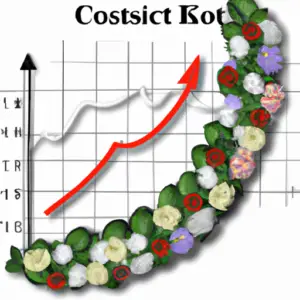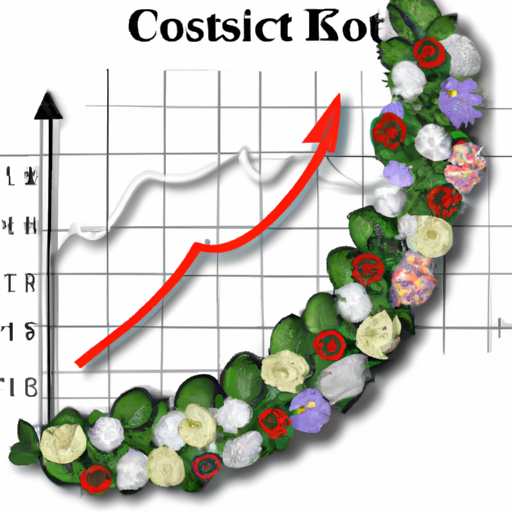Understanding Funeral Costs A Breakdown
Let’s Talk Funeral Costs: What You Need to Know
Hey there, folks! Today, I want to discuss a topic that isn’t often talked about: funeral costs. It’s not the most cheerful subject, but it’s important to understand how much a funeral may cost and what factors contribute to those costs.
To start off, funeral costs are the expenses associated with a person’s funeral, including burial or cremation arrangements, a casket or urn, embalming, service fees, and other related expenses. It’s important to note that funeral costs can vary greatly, depending on a variety of factors.
Factors That Affect Funeral Costs
Whew, funeral costs can add up quickly! And they’re impacted by a lot of different factors. Let me break it down for you.First off, let’s talk about the casket. A fancy and ornate casket will definitely be more expensive than a simple one. Keep in mind that you don’t have to buy the most expensive one. There are plenty of cheaper options out there that are still beautiful and respectful.Next up: burial plot. Depending on where you’re located, the price of land can vary widely. Also, if you’re going for a more traditional burial, there are additional costs for opening and closing the grave, a grave liner, and a headstone.Embalming is another factor to consider. Depending on state law, it may be required for certain situations. However, it’s not always necessary, and skipping it can save you a chunk of change.Finally, services like flowers, transportation, and the funeral home’s fees add up. Be sure to ask for a detailed list of all the services they provide, so you can pick and choose what you need.Overall, it’s important to understand these factors so you can make informed decisions about what’s important to you and what you can skip to save some money.
Get the Scoop on Funeral Costs: A Breakdown of Average Expenses
Grieving is already difficult, you don’t want to add financial stress to the mix. Understanding the components of average funeral costs can help you plan accordingly. Here is a breakdown of common expenses you’ll likely face:
Casket
One of the biggest expenses you’ll face is the casket. Prices can range from $2,000 to $10,000 or more, depending on the material and design. Metal caskets cost more than wood and particleboard. Higher-end materials, such as bronze or copper, will also increase the price. Choosing a more affordable casket can significantly reduce the overall cost of the funeral.
Burial Plot
The cost of a burial plot depends on the location of the cemetery. On average, a single plot costs around $1,000 – $4,000. A plot in a prime location can cost up to $10,000. There are also other costs to consider, such as opening and closing the grave, which can add an additional $1,000 – $2,000 to the total expense.

If you choose to have an open-casket funeral or delay the burial, embalming might be required. This process preserves the body, but also comes with a price tag. Embalming costs around $500 – $1,200 on average. If embalming is not necessary, it can be skipped to save some money.
Services
There are several services that are typically included in a funeral. This includes the funeral director’s fees, transportation, and other expenses. On average, funeral services cost around $2,000 – $4,000. Additional items, such as floral arrangements or obituary costs, can add even more expenses to the total.
Remember, these costs can vary depending on where you live and what services you need. Don’t be afraid to ask for a detailed breakdown of expenses to help you make an informed decision.
4. Tools for Understanding Funeral Costs
After researching factors that affect funeral costs, I realized that it can be difficult to navigate the complicated pricing structures. However, there are some helpful tools available that can help you better understand the costs involved and make informed decisions. One useful tool is a funeral calculator, which allows you to enter in various options and receive an estimate of the total costs. This can help you plan accordingly and avoid any unexpected costs. Additionally, many funeral homes offer itemized lists of their services and products, which can also assist in understanding the breakdown of costs. Don’t hesitate to ask for these lists before making any decisions.
Tips for Savin’ Money on Your Loved One’s Funeral
Well, let’s face it: funerals are never cheap. But just because you wanna give your loved one a send-off they deserve don’t mean you have to break the bank. Here are some tips I learned when plannin’ my grandpappy’s funeral that might help you save some money:
1. Shop around: funeral homes have different prices for their services and you can save a lot by comparin’ prices and packages. Don’t be afraid to negotiate and ask for discounts!
2. Skip the embalmin’: it’s not legally required in most states and it can save you hundreds. You can opt for refrigeration instead to preserve your loved one’s body until the funeral.
3. Consider cremation: it’s generally cheaper than traditional burials and you can still have a memorial service to honor your loved one. Look for funeral homes that offer direct cremation, without all the extra fees.
4. BYOC (Bring Your Own Casket): funeral homes mark up the price of caskets, but you can purchase one online or from a retailer and bring it to the funeral home. It might feel weird, but it can save you a lot of money.
5. Keep it simple: the more elaborate the funeral, the more expensive it gets. Consider havin’ the funeral at home, rather than a fancy venue, and limit the number of flowers and other extras.
These tips may not be for everyone, but they might come in handy if you’re on a budget. Remember, the most important thing is to celebrate your loved one’s life, not the amount of money you spent on their funeral.
6. To Sum it Up: Funeral Costs
Well, folks, that wraps up our discussion on funeral costs! Phew, what a heavy topic. But it’s important to talk about it and plan for it. As we’ve learned, a funeral can cost a pretty penny. But don’t fret, there are ways to save money and stay within your budget.Remember to think about the factors that affect funeral costs, such as the casket, burial plot, embalming, and services. And if you’re not sure where to start, try using a funeral cost calculator to get an idea of how much you may need to spend.I also want to emphasize the importance of shopping around and asking for itemized lists of expenses. Don’t be afraid to negotiate and consider alternatives, such as cremation or a green burial.Finally, I want to leave you with a resource that can provide more in-depth tips for saving money on funeral costs. Check out this article from Love, Laughter, Happily Ever After for expert advice and practical strategies. Thanks for reading! Remember, planning a funeral can be overwhelming, but with the right tools and approach, you can honor your loved one while staying financially responsible.






